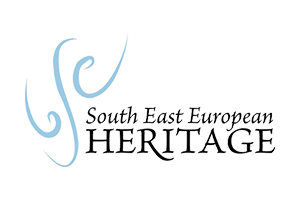The most rational use of land - appeal to all stakeholders
Global warming is the current challenge that humanity faces as a result of climate changes that are happening in our country as well. In this whole situation, we also play a part of the protagonist, where at the same time we are punished by this phenomenon. Therefore, we must do our best for the most rational use of the land.
Global warming means an increase in the average air temperature near the earth's surface, a phenomenon known to scientists since the 1880s when the first temperature increases were recorded. Its causes are: natural (solar activity, water vapor, climate cycles), and artificial (various human activities that cause an increase in the concentration of harmful gases in the atmosphere). From 1992 with the Rio Declaration to the Paris Agreement of 2017, various drafts have been drawn up at the global level for its mitigation.
Kosovo prepares reports on this phenomenon, although it is not a party to the Framework Convention on Climate Change (UNFCCC). The requirements of this convention are in line with EU policies, therefore, since our country is adapting and transposing EU legislation, it is obliged to report on it.
Data on air temperature, obtained from the relevant institutes, show that in Kosovo from 1900 until today, there has been movement of the average annual temperature with an increasing trend.
Thus, the average annual temperature for the period 1990-2002 was 9°C, while for the period 2003-2019 it was over 10°C. Rainfall in Kosovo also has such a change, but with a tendency to decrease. Thus, the average annual rainfall for the period 1930-1990 was 820 mm, while for the period 2001-2019 674 mm was recorded.
In 2020-2021, AMMK has carried out the assessment of annual greenhouse gas emissions for 2019, which results in 9,613 Gg (Giga grams) CO2 or about 9.6 million tons of CO2 emitted into the atmosphere. The main source of greenhouse gas emissions is the energy sector with a participation of 86% of the total emissions, then the agriculture, forestry and land use sector with 8%, that of waste with 5% and finally the sector of industrial processes and transport with 1%.
Our country is not a producer of ozone-depleting substances, but an importer of it, apart from the type of lubricants and paraffin.
Compared to other countries in Europe, Kosovo has lower emissions (5.5 t CO2 equivalent per resident in 2015) than the average of the European Union, but it has higher emissions than some countries in the region. As for CO2 emissions per unit of GDP (Gross Local Product), Kosovo with 0.5 kg of CO2 has higher emissions than the average of the European Union and higher than other countries in the region excluding Bosnia and Herzegovina.
The main gases emitted are CO2, methane with more than 10% of total emissions, while N2O and HFC with more than 1% of emissions.
One of the most important actions we can take to prevent global warming is the rational use of land. Forests and other ecosystems are major carbon stores. We can say that forests are the only ones that reduce (accumulate) CO2 emissions by about -39 Gg CO2 in 2019 in Kosovo alone.
Climate change strongly threatens biodiversity. They even directly affect forests by increasing the number of forest fires since 2000 until today due to the exposure to droughts. Illegal logging for commercial purposes, conversion of forest lands to agricultural lands through fires, diversion of fires to camps for relaxation purposes are also contributors to global warming. New research based on satellite images shows that during the last two decades Kosovo has lost 7,618 ha of forests. Only in 2021, about 2,653 ha of forests and forest land were damaged as a result of fires. Over 90% of wood cutting in forests is irregular cutting. The cost of forest degradation for each year is estimated to be over €16 million.
All the above phenomena affect the highest value that humanity has - health.
In Kosovo, there are no genuine studies based on indicators that assess the real impact of the state of the environment on public health. The number of registered environmental diseases continues to have a linear trend in Kosovo. In some cases, significant increases have also been recorded. During 2020, the large number of patients with COVID-19 should be singled out.
According to statistical data in Kosovo, it is established that the largest number of deaths, as far as the causes related to the environment are concerned, are those from diseases of the blood circulation system, tumors and from diseases of the respiratory system. Air pollution is estimated to cause over 800 premature deaths, over 300 new cases of chronic bronchitis, over 600 hospitalizations and over 11,000 emergency room visits each year. An approximate cost related to health damages is calculated from €37 million to €158 million for each year. Hot temperatures increase ozone concentrations, which can damage people's lung tissue and cause complications in asthma patients and those with lung disease.
Global warming obviously needs to be examined concisely from all the sectors that cause it. Considering that the total emissions are highly dependent on the amount of energy produced by coal, the use of renewable energy sources would be the best option for the country.
Regarding the transport sector, promoting sustainable transport with less motorized traffic (cycling, public transport) would be one of the optimal solutions.
Strengthening environmental institutions for monitoring each environmental sub-sector, raising the capacities of the environmental sector in municipalities, proper functioning of the Ecofund, raising water quality, can all be considered as major actions in terms of health and improving global warming.
While in the forestry sector, the increase in cooperation between the Kosovo Forestry Agency and Municipal Authorities in sustainable forest management, the implementation of the law by the responsible institutions of justice, can be major steps in mitigating climate change and would certainly have a positive impact on on human health.




